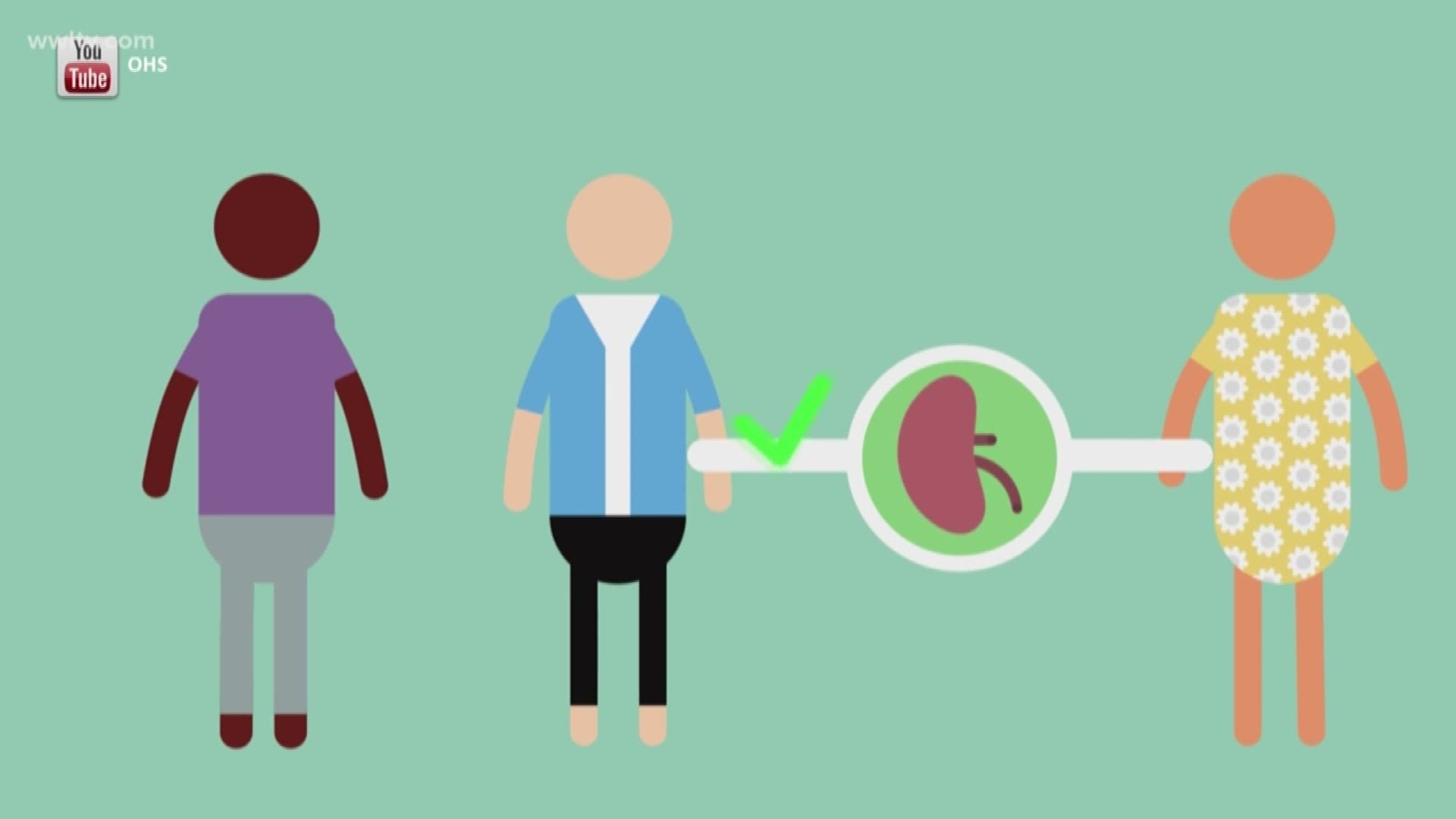NEW ORLEANS - When people think about organ donation, it's usually in a sad context. But Dr. Emily Bugeaud has a different perspective.
"It is rewarding to come in at a time when a patient is sick and be able to help in a profound way," Bugeaud said.
Dr. Bugeaud is a transplant surgeon at the Oschner Health System, which has one of the largest transplant centers in the country. While most people know that they can register to be a donor after they die, Bugeaud wishes more people knew they could make a difference while they are still alive.
A normal, healthy person can donate a kidney. In fact, there is a kidney exchange program for people who want to help a loved one but aren't a direct match.
"Someone can essentially donate their kidney indirectly to that loved one because we can find a pair somewhere else in the country that maybe has a similar circumstance and that person's donor and your donor is a good match for that person's loved one," Bugeaud said.
If you are healthy, you can also donate part of your liver.
"You can donate a part of your liver to someone in need and then that liver regenerates or regrows in both the recipient and the donor."
If you want to step up to be an organ donor while you are living but don't know someone in need of an organ, don't let that stop you.
"We have non-directed donation. It happens. It's when someone decides they want to help someone, not having a recipient in mind, Bugeaud said. "They feel motivated to donate. They can often start these exchange chains by donating a kidney."
Dr. Bugeaud also points out that people with serious health issues can be organ donors. Some people who have had transplants have gone on to be recipients.

